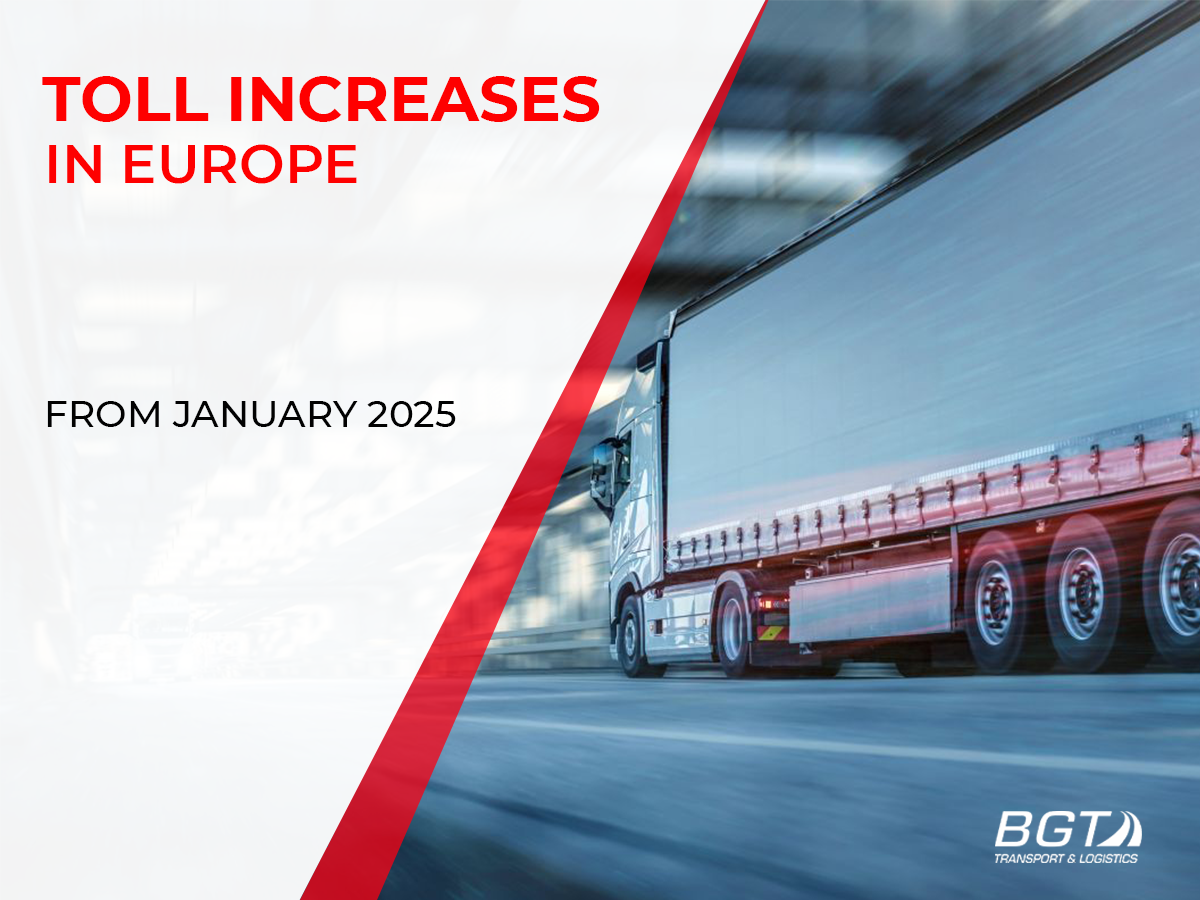From January 1, 2025, many European countries have introduced increases in road tolls to boost funding for infrastructure modernization and adapt to rising maintenance costs. Below is a summary of the changes in various countries:
-
-
- Poland
-
Road toll rates have increased by approximately 3.3%, in line with the statutory mechanism for indexing fees based on the consumer price index.
-
-
- Austria
-
The infrastructure charge has been adjusted for inflation, and the CO₂ tariff component has been raised, resulting in an overall increase of approximately 7.4%. Additionally, a separate road toll tariff for buses has been introduced, offering a 25% reduction in CO₂ emission costs.
-
-
- Belgium (Walloon Region)
-
As of January 1, 2025, road toll tariffs in the Walloon Region of Belgium have been adjusted for inflation, leading to an average increase of about 2.86%.
-
-
- Czech Republic
-
Road toll rates for heavy vehicles have risen by up to 5% compared to the previous rates, primarily due to higher CO₂ emission charges. Moreover, the network of toll roads has been expanded to include new sections of motorways and Class I roads.
-
-
- Slovakia
-
A 3% increase in road tolls is the result of the VAT rate being raised from 20% to 23%.
-
-
- Switzerland
-
Road tolls have increased by approximately 5%.
-
-
- Hungary
-
The infrastructure charge has risen by 3.4%, translating into an average total tariff increase of about 2.5%.
-
-
- Sweden – Øresund Bridge
-
Tolls have increased by approximately 1.5%.
-
-
- Denmark – Storebælt Bridge
-
From February 1, 2025, tolls are expected to rise by approximately 2%.
-
-
- Spain
-
An average increase in toll rates of 2–3% is expected, depending on the concessionaires. On the Atlantic Highway (AP-9) in Galicia, a 50% discount on tolls for heavy vehicles has been introduced from the first trip.
-
-
- Portugal
-
In line with inflation, toll rates on Portuguese motorways are expected to rise by 2.23%.
-
-
- France
-
From February 1, 2025, an average toll increase of 0.9% is planned, depending on the freeway network, driven by inflation and infrastructure maintenance investments.
Other Countries
Some countries, such as Germany and Slovenia, have announced no changes to toll tariffs for heavy vehicles as of January 1, 2025.


